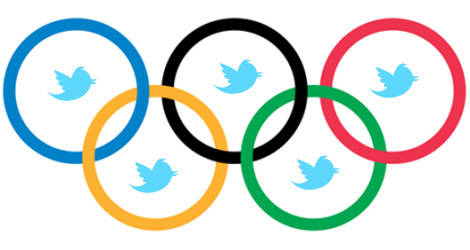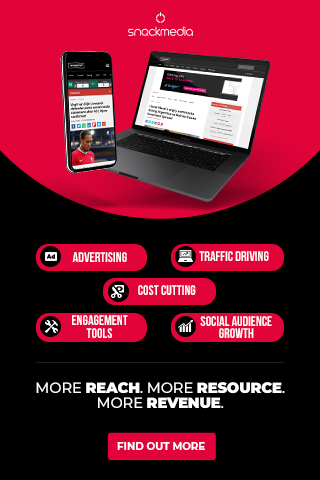The Socialympics
Iain Taker is an associate lawyer at Kemp Little LLP (iain.taker@kemplittle.com), specialising in commercial contracts, social media and sports law, and is a registered lawyer under the FA Football Agency Regulations. You can follow him on twitter @iaintaker or on LinkedIn
The laws implemented for the London Olympic Games are the most stringent ever introduced by a host country and involve some concepts never previously covered by Olympic legislation. This article will briefly look at the new legislation that has been enacted, what an infringing act consists of, the defences and exemptions , penalties and gives some suggestions as to what a brand (a non-official sponsor) should do.
July and August this year will see the 30th modern Olympic games in London but interestingly it will be the first time social media will truly be used to embrace the event. Four years ago in Beijing there was had no official integration with social media platforms a simply amazing thought. At that time the respective user figures for Facebook and Twitter was 100m and 6m. Since then those figures have skyrocketed to 845m and 140m respectively. One effect of the increased social media awareness is the implementation, and effect, of new legislation that surround and protect the London Olympics.
The commentary below looks at the situation from the perspective of a brand who has no official affiliation with the event.
Legislation
Direct engagement and dialogue between brands and customers is one of the beauties of social media, which blurs the ‘us’ and ‘them’ distinction. It is this blurring that makes application of the new legislation so difficult. The key pieces of relevant (specific) legislation are:
(1) the ‘Olympic Association Right’ (OAR) and ‘Paralympic Association Right’ (PAR); and
(2) the ‘London Olympic Association Right’ (LOAR).
The OAR was introduced by the Olympic Symbol etc. Protection Act 1995 as amended in 2006 (one amendment was the introduction of PAR). OAR/PAR confer exclusive rights in relation to use of the Olympic Symbol, the Olympic motto and the protected words (for a full list see the LOCOG brand guidance), where such are used without the necessary consent. LOAR was also introduced in the 2006 amendments and grants exclusive rights in relation to any representation, which is likely to suggest to the public that there is an association between the person, goods or services and the Olympic Games in London. It has intentionally been drafted to be vague, broad and far-reaching in order to cover any use which might create an association with the London Olympics. The right has the potential to be most far-reaching and subjective intellectual property right within the UK.
As with all pieces of new legislation there has, and continues to be, significant challenges of interpretation and questions. Some of the questions are answered by LOCOG’s guidance for brands and advertisers, however the new rules relating to social media are somewhat of a challenge to fully understand. The result is that there are a number of brands, moderators and digital marketing agencies who are still seeking guidance as to what they are entitled to do and say just weeks before the event commences.
Infringement
None of the rights will be infringed unless there is use, in the course of trade, in relation to goods or services, where the infringer does not have the Olympics authorities’ consent. One unusual aspect is that where the brand owner/marketing agency is accused of breaching the OAR/PAR the burden of proof is reversed. In effect the brand is deemed guilty unless they are able to prove that they are innocent (the opposite is true for any LOAR infringement). Additional restrictions imposed on brands include prohibitions on using Olympics tickets as part of a competition and holding conferences or seminars on the topic of the Olympics.
When establishing whether an infringement of LOAR has occurred a court may take account of whether the “listed expressions” (see below) have been used. While the listed expressions are a helpful guide it is not the not thing that a court will look at. However, when two words from List A are used together or one from List A with one from List B they will be a heavier weighting towards an assumption that an association has been created and thus the brand will have infringed LOAR.
List A words: Games, Two thousand and twelve, 2012 and Twenty twelve.
List B words: Gold, Silver, Bronze, London, Medals, Sponsor and Summer.
Defence/Exemption
Olympic symbols and words can be used where there is an exemption or defence. The two most relevant defences/exemptions to the legislation are where the content is:
1. A statement which “accords with honest practices” – as no association will be created. LOCOG clarified that key factors will include:
a. is the statement true and accurate?;
b. is there any suggestion or implication of a connection with the Olympics?;
c. is there any unfairness to the interests of the Olympic authorities and sponsors?; and
d. is the context of use relevant?
2. Part of publishing or broadcasting of a report or information about the Olympics. Where there is a genuine journalist report the use will be exempt. It is important to note that while brands cannot use this exemption to sponsor a news broadcast or conferences, “marketing collateral” (such as corporate newsletters) are exempt. Whether a brand can report on events via social media channels unhappily remains a grey area.
Penalties
An important aspect of the preventative nature of the new legislation is the penalties (in addition to adverse publicity) that can be applied for infringements.
Civil penalties
Infringement of OAR/PAR and/or LOAR can result in civil penalties. The penalties that can incurred include damages, an account of profits, injunctions, order for delivery-up of offending assets, erasure of offending signs and/or disposal.
Criminal penalties
In addition to the civil penalties infringements of OAR/PAR can also result in criminal sanctions. An example of an infringement which can attract criminal sanctions is if a brand has a view to gain for itself or another, or with an intent to cause loss to another (e.g. an official sponsor) and without the necessary consent applies a controlled representation to goods or packaging. On summary conviction the maximum fine is £20,000 and conviction on indictment the fine is unlimited.
What should a brand do?
It is therefore advisable to only provide social media content that is giving relevant, accurate and factual information. All pictures, video and audio content should be moderated prior to use to ensure that no association will be conferred by its use. Additionally brands should update their moderation guidelines to cater for the OAR/PAR and LOAR.
Where a brand is re-tweeting user generated content they must consider the consequences as if the content was initiated by the brand themselves. Therefore brands should not encourage Olympic themed content from users or pass on specific expressions of support or excitement that refer to the games or individuals within the games. In short wherever there is a risk of an association (or use of symbols or words) with the Olympics brands must be very careful prior to using such content.
Under LOAR a brand cannot be “associated with” the London Olympics, an association is defined as suggesting any kind of contractual or commercial relationship, and kind of corporate connection or provision of financial or other support (such as sponsorship or free services). Where a brand has any uncertainty over content both generated on their behalf and by users the content should be deleted to avoid any potential further infringement/damage being caused.
LOAR was created in part due to previous ‘creative’ methods of brands in the past to circumvent previous legislation. Opposed to focussing on set instances that are covered LOAR seeks to focus on the overall impact of an activity. Therefore brands should look not only to the letter of the new legislation but also to the spirit. Ambush marketing has been a significant issue in previous Olympic games and the authorities hope that the introduction of the LOAR will prevent it occurring in London.
Conclusion
OAR/PAR and LOAR offer the Olympic authorities more broad and significant rights than ever before in the fight to avoid ambush marketing. It is however, likely to be a consequence that the first ‘Social Olympics’ will see a number of brands test the boundaries of these pieces of legislation as they seek to engage with their customers.
It is uncertain the extent to which LOCOG will (and will be able to) enforce these powers where a brand is ‘innocently infringing’ with many commentators believing that the powers are predominately there to prevent severe examples of activities that would constitute intentional infringement under the new legislation e.g. Nike during the Atlanta Olympics in 1996. Professor Simon Chadwick has said that LOCOG will be using specialist intelligence/policing squads in conjunction with agreements with social media sites such as Twitter to police the new legislation. Whether this will be sufficient or even over-kill awaits to be seen.
The effective result of the introduction of the legislation is a situation where many brands are still having difficulty in establishing exact guidelines as what they are permitted to do without infringing. Helpful guidance can however be found at The Guardian and the Committee of Advertising Practice.
About author
You might also like
SPORTEL 2021: Day One Recap
This year’s prestigious SPORTEL convention kicked off in sunny Monaco today, welcoming a host of familiar faces as well as plenty of new ones. Doors opened at 8:30am with businesses
Six Founding Riders Set To Bring The Vision Of The UCI Track Champions League To Life
Olympic Champions, UCI World Champions and World Record holders join the new track cycling competition debuting in November 2021 The UCI Track Champions League is delighted to announce that six
Sports related spending to soar this summer as pre-pandemic life resumes
New insights from eBay Ads UK reveal the potential for brands to engage with an excited but nervous nation as sports events get back on track As pubs and indoor








